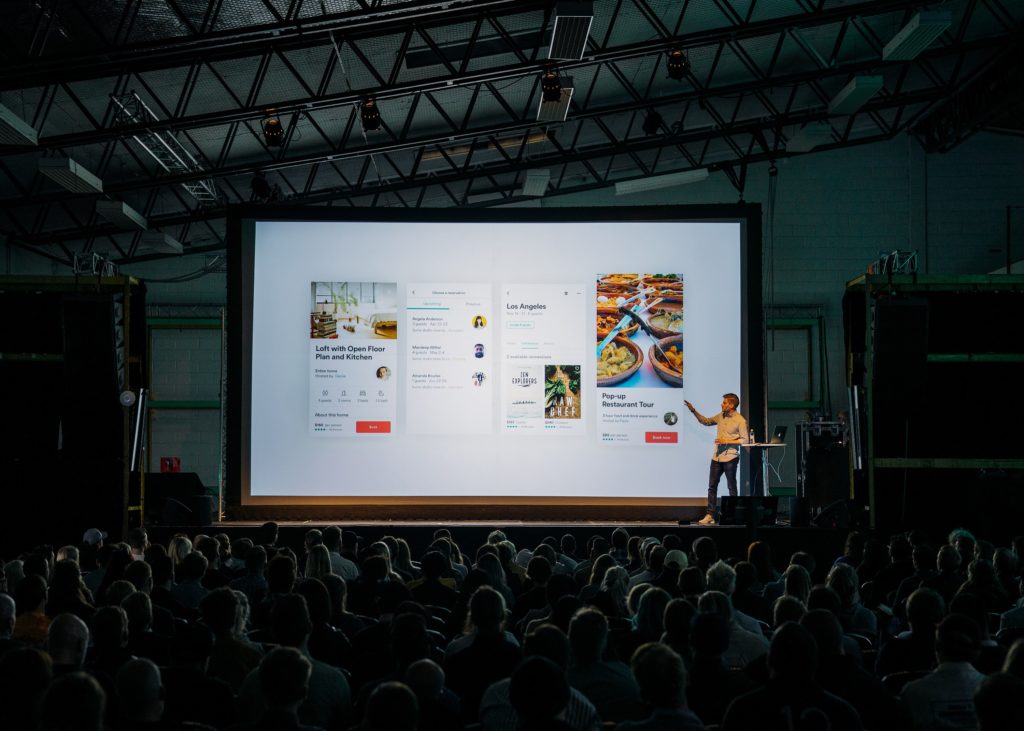This is a guest post by Rachel Grate, content strategist at Eventbrite
Technology is changing the landscape for every type of company today, in every area of business. Events are no exception.
Online event registration was just the start. Now, technology can both make your event creation process way easier and make the experience for attendees better in countless ways.
But with so many emerging technologies, it can hard to know which will shape the future of business events — and which are a trend that will be gone by next year. At Eventbrite, I help events managers identify the trends they should use to streamline their processes and systems around events.
Here are four technologies business systems leaders and operations people need on their radar to optimize their processes and keep their team’s events on the cutting-edge.
Artificial intelligence makes smarter use of event data
Artificial intelligence (AI) is no longer a “someday” technology. In a survey Eventbrite conducted in 2018, 88% of event professionals said they planned to rely on AI in the next year — way up from 42% in 2017.
This jump is partly thanks to the increasing ways event creators use AI in their events. Here are just a few uses already within reach:
- Use AI-powered chatbots to connect with attendees and answer basic questions quickly. If a registered attendee wakes up in the middle of the night panicking about where to park, the chatbot gives instant answers.
- Power “personal assistants” to make relevant recommendations — like which track to attend — to event-goers based on their social media activity. This creates a highly personalized experience.
- Finding new attendees by analyzing your current social media fans to identify new audience segments you can target. Tools like ToneDen, for example, use machine learning (a type of AI) to help you target interested audiences on Facebook and Instagram.
With its ability to quickly scan and look for patterns in large datasets, there are many more applications for AI in the near future of business events.
Automation frees up event creators to focus on high-value activities
Event creation is incredibly hectic and stressful. Anything that can be done to simplify to-do lists lets your team focus on more strategic and creative tasks.
Your tools can work together to automate things you do every day. For instance, if you use an event registration platform like Eventbrite, you can integrate with your CRM like Salesforce and your account or email marketing platform like MailChimp, to automatically transfer attendee information from one
Another scenario: Your team creates a new event on Eventbrite. By pressing one button, you can create a Facebook Event with all the same information. A “Buy tickets” is button embedded in that Facebook Event so your fans can register without having to navigate away from their Facebook app.
This sort of task streamlining means your team doesn’t have to hop from platform to platform all day long. And at the same time, it creates a more seamless experience for attendees and customers.
Mobile event apps deeply engage and properly inform attendees
People are already in the habit of staring at their screens while there’s a lull in the action. You can tap into this implicit behavior with custom event apps.
Event apps used to be basic reproductions of printed event materials. But now, innovative event owners are starting to build functionality into their apps that can only be done well with digital. For instance:
- Push notifications provide attendees with relevant updates during the event. An app can let them know when a favorite speaker is about to present or a change to a room assignment occurs.
- App integrations such as Slido enable presenters to conduct live Q&As during presentations. Speakers field questions from participants and respond in real time.
Imagination is the limit when it comes to engaging with attendees through apps.
RFID makes for seamless lead scanning and data collection
RFID (radio-frequency identification) can turn your team’s business event into a lead-generation machine.
For attendees, RFID badges make entry seamless and cashless purchase convenient. At the swipe of a badge, attendees can also share their contact and job information with vendors, strategic partners, and other attendees. This makes for lightning-fast lead collection.
RFID helps your events business collect more accurate event data faster — and not just leads. RFID can be used to give you insight into how and which attendees are interacting with activations, for instance. With this type of data, your team can refine your events over time for ever-better attendee experience.
Modernize your business events
Want to learn more about how to bring your business events into the next millennium? Read The Executive’s Guide to Creating an Out of This World Conference.
